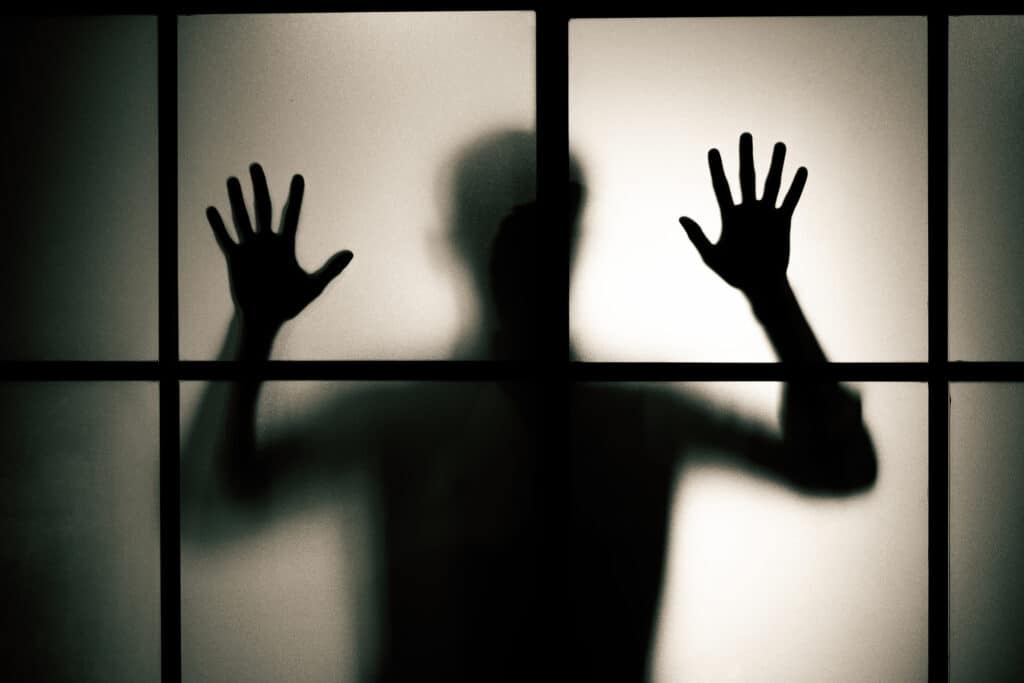
What if a whisper can be louder than a shout? Given an era where being constantly surrounded by people is the norm, the act of choosing to withdraw can speak volumes. This article plunges into the depths of being alone with our thoughts, unveiling the fascinating connection between isolation vs solitude. If this interests you, then this is an enlightening piece on how being truly alone, even for brief periods of time, influences us.
Now, do you understand the subtle differences between these seemingly similar concepts? It’s easy to confuse isolation with solitude, but they are not one and the same.
This post will guide you through the intricacies of solitude and isolation, help you distinguish the difference between solitude and isolation, and reveal how to transform isolation into moments of personal growth and self-discovery.
Solitude Vs Isolation Key Differences
| Aspect | Solitude | Isolation |
|---|---|---|
| Choice | Chosen | Imposed |
| Effect on Mind | Refreshes | Drains |
| Creativity | Fosters Creativity | Hinders Creativity |
| Emotional State | Peaceful | Lonely |
| Mental Clarity | Brings Clarity | Causes Confusion |
| Resilience/Strength Building | Builds Strength | Breeds Weakness |
| Personal Growth | Enriching | Stifling |
| Self-Connection | Connects with Self | Disconnects |
| Sense of Freedom | Liberating | Confining |
Is Solitude and Isolation the Same Thing?
Solitude and isolation, often used interchangeably, are fundamentally different concepts. Both loneliness and solitude involve being alone, but the nature of this aloneness and its impact on an individual varies significantly. Understanding the difference between isolation and solitude is important in recognizing how each state affects our emotional well-being and mental health.
To better understand these two concepts and their influence, let’s first define each.
What is Solitude?
Solitude is a state of being alone without being lonely. It is often a chosen condition where one can step away from the demands and distractions of social interaction. People seek solitude for various reasons: to reflect, to rest, to engage in personal interests, or to simply enjoy the quiet.
Unlike isolation, solitude is associated with positive feelings and mental states. It allows for self-exploration, creativity, and a deeper connection with one’s own thoughts and feelings. In solitude, the absence of others is not a deficiency but an opportunity for enrichment and self-discovery.
What is Isolation?
Isolation is the state of being separated from others, either physically or emotionally. Unlike solitude, it is not typically a chosen state. Isolation can be imposed by external circumstances or as a result of internal feelings. People in isolation may feel disconnected, lonely, and unable to engage with others, even if they physically can. The experience of isolation can have significant negative impacts on mental and emotional well-being, leading to feelings of loneliness, sadness, and even depression. It’s a state where the lack of social interactions and connections becomes a detrimental aspect of one’s life.

Solitude vs Isolation: What’s the Difference?
While both involve being alone, their effects on our mental and emotional well-being are vastly different. Here’s how isolation and solitude uniquely affect our lives:
Solitude is Chosen, Isolation is Imposed
The key divergence between solitude and isolation lies in the element of choice.
Solitude is an intentional state, a deliberate decision to spend time alone. This choice empowers individuals, offering them control over their environment and interactions. It’s a conscious step taken for personal reasons, whether for reflection, relaxation, or rejuvenation.
-
Autonomy: Selecting to be alone.
-
Control: Dictating the terms of one’s alone time.
-
Intention: Pursuing specific goals or states of mind.
In contrast, isolation is often an external condition imposed upon an individual. It can be the result of circumstances, societal structures, or even punishment. This lack of control over one’s solitary state can lead to feelings of helplessness and resentment.
-
Imposition: Being forced into solitude.
-
Helplessness: A lack of control over one’s social interactions.
-
Circumstantial: Stemming from external factors beyond personal choice.
Solitude Refreshes, Isolation Drains
Solitude serves as a wellspring of rejuvenation. It allows individuals to decompress, process thoughts, and regain energy. This time alone is often vital for mental and emotional well-being, providing a pause from the constant stimuli of social interaction.
-
Rejuvenation: Revitalizing one’s mental and emotional state.
-
Decompression: Easing the pressures of social interaction.
-
Self-reflection: Engaging in introspective thought.
Isolation, however, can have a draining effect. It often leads to a feeling of being cut off from vital social and emotional support systems. The prolonged absence of interaction and communication can result in a sense of emptiness and depletion.
-
Emotional Drain: Feeling disconnected from social support.
-
Mental Fatigue: The toll of prolonged absence of interaction.
-
Sensory Deprivation: Lack of stimulating social environments.
Solitude Fosters Creativity, Isolation Hinders It
Solitude can be a fertile ground for creativity. The quiet and uninterrupted space allows the mind to wander, explore, and create without the constraints or distractions of others. It’s a state where imagination can flourish, leading to innovative ideas and unique solutions.
-
Uninterrupted Thought: Freedom from distractions.
-
Imagination: Nurturing creative thinking.
-
Innovation: Cultivating new ideas and perspectives.
Conversely, isolation often stifles creative impulses. The lack of external stimuli and interaction can lead to a narrowing of perspective. Without exposure to different ideas and viewpoints, the creative process can become stagnant.
-
Limited Perspectives: Reduced exposure to new ideas.
-
Stagnation: Lack of creative growth.
-
Conformity: Tendency towards familiar patterns and thoughts.
Solitude is Peaceful, Isolation is Lonely
Solitude is often associated with peace and tranquility. It offers a break from the hustle and noise of daily life, providing a serene environment to rest one’s mind. This peace is not just physical but also mental, allowing for a respite from social pressures and expectations.
-
Tranquility: Calmness and quiet.
-
Mental Rest: Relief from social pressures.
-
Personal Space: Creating a peaceful environment.
Isolation, in stark contrast, can be deeply lonely. This loneliness is not just the absence of people but a deeper sense of disconnection from others. It can feel like an invisible barrier between oneself and the rest of the world, creating a sense of alienation and sadness.
-
Disconnection: Feeling cut off from others.
-
Sadness: Emotional response to prolonged loneliness.
-
Alienation: A sense of being separate or different.
Solitude Brings Clarity, Isolation Causes Confusion
Solitude, when sought and practiced, has a clarifying effect on the mind. It provides the quietness necessary for deep thought, allowing individuals to sort through their thoughts and feelings without distraction. This process of internal reflection and contemplation leads to greater self-awareness and understanding. It’s in these moments of solitude that one can analyze life’s complexities and find direction.
-
Self-awareness: Understanding personal thoughts and feelings.
-
Clarity of Thought: Ability to think without distractions.
-
Decision Making: Formulating clearer, more thoughtful decisions.
Isolation, in contrast, often results in confusion. Devoid of meaningful social interaction, the mind may struggle to process thoughts and emotions effectively. This can lead to a blurring of thoughts, where ideas and feelings become tangled and unclear. The absence of external viewpoints and feedback can exacerbate this confusion, leaving individuals uncertain and indecisive.
-
Mental Turbulence: Difficulty in processing thoughts.
-
Uncertainty: Lack of clear decision-making.
-
Lack of Feedback: Absence of external perspectives to clarify thoughts.
Solitude Builds Strength, Isolation Breeds Weakness
Solitude allows individuals to build mental and emotional strength. It provides the space to confront and manage personal challenges independently. This practice of facing and overcoming obstacles in solitude can fortify resilience and confidence. Moreover, solitude may enhance one’s ability to cope with future stresses, equipping them with a stronger mental framework.
-
Resilience: Developing the ability to overcome challenges.
-
Confidence: Gaining trust in one’s abilities.
-
Coping Mechanisms: Enhancing skills to deal with future stresses.
Conversely, extreme isolation can breed a sense of weakness and dependency. Over time, the lack of social interaction and support can erode an individual’s ability to deal with challenges independently. This can lead to increased reliance on others for emotional support or decision-making, diminishing personal strength and self-sufficiency.
-
Dependency: Increased reliance on others.
-
Erosion of Self-sufficiency: Weakening of independent coping skills.
-
Emotional Fragility: Heightened vulnerability to emotional stresses.
Solitude is Enriching, Isolation is Stifling
Solitude can be an enriching experience. It offers the opportunity for personal growth and self-discovery. In solitude, individuals often engage in activities that foster self-improvement, such as reading, meditating, or pursuing hobbies. This investment in self can lead to a more fulfilling and balanced life.
-
Personal Growth: Development of skills and knowledge.
-
Self-Discovery: Exploration of personal interests and passions.
-
Balance: Achieving a more harmonious life.
Isolation, particularly when prolonged, tends to be stifling. The lack of social stimuli and opportunities for personal growth can lead to a feeling of being stuck or trapped. Without new experiences or interactions, personal development may stall, resulting in a sense of stagnation.
-
Stagnation: Lack of personal growth and development.
-
Trapped Feeling: Sensation of being confined.
-
Lack of Stimulation: Absence of enriching experiences.
Solitude Connects with Self, Isolation Disconnects
Within solitude, individuals often find a deeper connection with themselves. This connection is fostered through introspection and self-reflection. By spending time alone, people can tune into their own needs, desires, and aspirations, leading to a stronger sense of self and purpose.
-
Introspection: Delving into personal thoughts and emotions.
-
Self-Understanding: Gaining insights into one’s desires and needs.
-
Purpose: Clarifying personal goals and aspirations.
In contrast, isolation can lead to a disconnection from oneself. The absence of interaction and external engagement can cause individuals to lose touch with their own needs and feelings. This detachment can result in a diminished sense of identity and purpose, leaving individuals feeling lost and disconnected.
-
Loss of Self: Diminished sense of identity and purpose.
-
Emotional Detachment: Disconnection from personal emotions.
-
Identity Crisis: Struggle with self-understanding and direction.
Solitude is Liberating, Isolation is Confining
Solitude provides a sense of liberation. It frees individuals from the expectations and judgments of others, allowing them to be truly themselves without external pressures. This freedom can be incredibly liberating, offering a chance to explore one’s true nature and desires without fear of critique or conforming to societal norms.
-
Freedom from Judgment: Relief from others’ opinions.
-
Self-Expression: Opportunity to explore personal identity.
-
Non-Conformity: Avoiding societal pressures.
Conversely, isolation often feels confining. When people are forcibly separated from others, they may feel trapped, both physically and mentally. The lack of social interaction and variety can make their world feel smaller and more restricted, leading to feelings of entrapment and frustration.
-
Mental Confinement: Feeling trapped in one’s own mind.
-
Frustration: Result of restricted social interaction.
-
Limited Worldview: Narrowed perspective due to lack of exposure.
When you practice solitude, you might find unexpected treasures of productivity and self-awareness. Conversely, the involuntary shadow of social isolation casts a different hue, often painting pictures of isolation and loneliness.
From understanding the contrasts between solitude and isolation, the next step naturally beckons: how do we effectively practice solitude? The post linked here goes into practical strategies and insights through the process of turning time spent alone into a nourishing, enriching experience, rather than a daunting one.

Conclusion
Solitude and isolation might appear similar on the surface, but they hold fundamentally different meanings and implications for our well-being.
By understanding the key differences between these two experiences and actively applying the strategies on how to practice solitude outlined in this article, you can transform isolation into a period of meaningful solitude.
Now: Is every moment of silence a step towards self-discovery, or a descent into the abyss of loneliness? The delicate balance between solitude and isolation challenges us to reassess our relationship with being alone. This goes far beyond whether we feel lonely or isolated when we are alone, but also about how we respond to these moments.
Can periods of solitude transform into a sanctuary for growth, or does isolation inevitably lead to a maze of confusion?
Hopefully, this article helped you to look beyond the surface, to perceive the quietude of solitude and the echoes of isolation in a new light, encouraging a deeper reflection on what it means to be alone in a world where we are seldom truly alone.
FAQs
Q: How does alone time contribute to mental health and well-being?
A: Alone time provides an opportunity for self-reflection, relaxation, and rejuvenation, which are essential for maintaining mental health and overall well-being.
Q: How can solitude affect productivity?
A: Solitude can enhance productivity by providing a peaceful environment for focused work and allowing individuals to tap into their creativity without distractions.
Q: What is the impact of COVID-19 on feelings of loneliness and isolation?
A: COVID-19 has exacerbated feelings of loneliness and isolation for many people, as it has caused greater physical distance and limited social interactions.
Q: How does the concept of emotional maturity relate to solitude?
A: Emotional maturity enables individuals to appreciate and benefit from solitude, as it allows them to manage their emotions and find fulfillment in being alone.
Q: Why is it important to distinguish between healthy solitude and harmful isolation?
A: Distinguishing between healthy solitude and harmful isolation is crucial for understanding the impact on mental and emotional well-being, as well as for promoting positive behaviors and attitudes towards alone time.
Q: How can individuals combat feelings of loneliness when spending time alone?
A: Individuals can combat loneliness by engaging in self-care activities, connecting with loved ones virtually, and seeking support from mental health professionals when needed.
Q: Can someone be alone without feeling isolated?
A: Yes, it is possible for individuals to be alone without feeling isolated, as long as they maintain a sense of connection to themselves and the world around them.
Q: What are the implications of solitude on spiritual and emotional well-being?
A: Solitude can deepen spiritual and emotional well-being by providing individuals with the opportunity for contemplation, self-discovery, and a closer connection to their spirituality.
A: The fear of being perceived as antisocial can lead people to avoid solitude, even when they could benefit from it, due to societal pressures and misconceptions about what it means to be alone.









